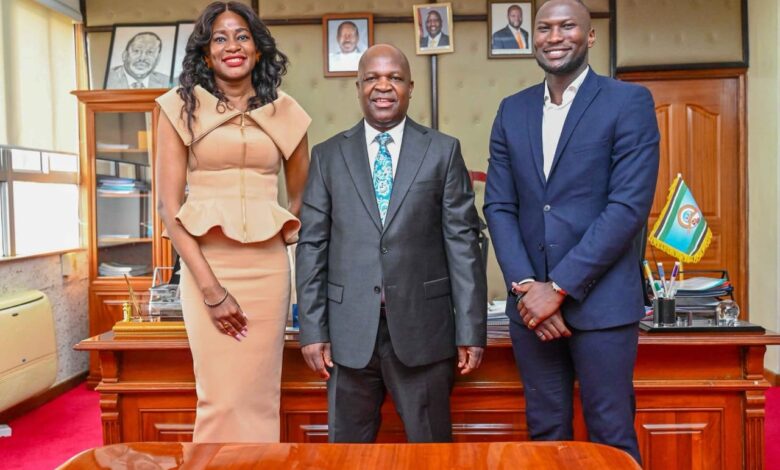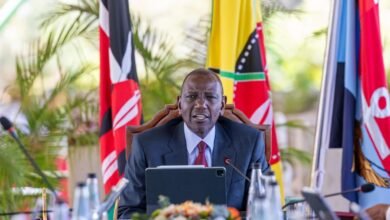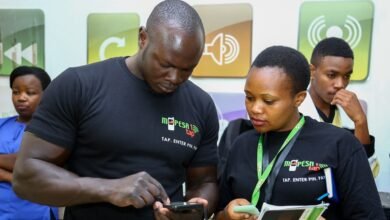
Kisumu’s 2025 Business Summit Aims to Unlock Major Investment for Kenya’s Lake Region
Organizers of the upcoming Business Ecosystems Summit (BES) in Kisumu are calling on investors to direct capital towards high-impact projects in Western Kenya. The summit, scheduled for August 6-8, 2025, aims to foster transformational deals and regional unity by bringing together business leaders, investors, and policymakers.
A Strategic Push for High-Impact Investments
The 2025 Business Ecosystems Summit is positioned as a pivotal event for unlocking the economic potential of the Lake Region Economic Bloc (LREB). Speaking at a recent press conference, Victor Nyagaya, the CEO of LREB, stressed that strategic public-private partnerships (PPPs) and regional cooperation are crucial for building resilient economies in the area.
A Vision for a Resilient Economy
Nyagaya highlighted the ongoing efforts to create a favourable investment climate through harmonized policy frameworks, simplified approval processes, and robust accountability. He called for partnerships that focus on tangible outcomes for the region.
Key areas targeted for development include:
- Clean energy solutions for homes.
- Funding for climate-smart irrigation projects.
- The establishment of local innovation hubs.
- Creation of circular waste management solutions.
- Growth of the blue economy.
“PPPs are key to achieving our development goals,” said Mr. Nyagaya. “Let us form partnerships that deliver clean energy to homes, fund climate-smart irrigation, build innovation hubs, create circular waste solutions, grow the blue economy, and transform lives in the bloc and beyond.”
Kisumu: An Emerging Investment Hub
H.E. Dr. Mathew Ochieng Owilo, the Deputy Governor of Kisumu County, affirmed the county’s readiness to welcome investment across multiple sectors. He pointed to Kisumu’s strategic location as a key advantage for economic growth.
Leveraging Lake Victoria for Trade and Innovation
“Kisumu is ready for business,” stated Dr. Owilo. “With Lake Victoria as a gateway to East Africa, we are strategically positioned to grow regional trade, attract global investment, and drive innovation.”
The county is focusing on attracting capital into several key sectors, including:
- The blue economy
- Logistics
- Tourism
- Agribusiness
Building on Past Success: The BES 2025 Agenda
The summit, organized by The IMC People, is not a new initiative. It builds on the significant achievements of the previous event, BES 2023.
From USD 400 Million to New Horizons
BES 2023 was instrumental in facilitating over USD 400 million in capital flows. It also supported major Memorandums of Understanding (MOUs), including a landmark USD 3 billion agreementbetween the Government of Kenya and Afreximbank. The 2025 edition aims to surpass these figures by unlocking even more investment for both private and public sector enterprises.
More Than Just a Summit
Jeanette Oromo, CEO of The IMC People, explained that the goal is not to reinvent existing processes but to enhance them. “BES 2025 is about designing the future of business ecosystems in Africa,” she said. “We are not re-inventing the wheel through the Summit. We are simply greasing it for faster movement through practical partnerships and driving sustainable policies.”
The summit’s programme will include a high-level forum, sector-specific panel discussions, investment matchmaking sessions, and an immersive marketplace for showcasing projects and innovations.
What to Expect at the Business Ecosystems Summit 2025
The theme for this year’s event is “Fostering Functional Business Ecosystems and Collaborative Investments.” It aims to create ecosystems that are fully prepared for investment, connecting promising ventures with the capital they need to scale.
A Global Convergence for Local Impact
The summit is expected to attract over 2,000 participants from 23 countries. Attendees will include representatives from Investment Promotion Agencies, government officials, and private sector financiers. The event will present opportunities across a wide range of sectors, including agriculture, renewable energy, healthcare, technology, and manufacturing.






